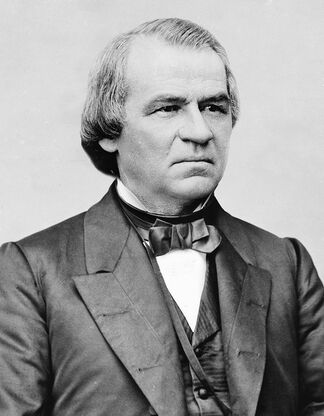 President Andrew Johnson (Photo by Matthew Brady; Public Domain)
President Andrew Johnson (Photo by Matthew Brady; Public Domain) Johnson became the first American president to be impeached on March 2–3, 1868, when the House formally adopted the articles of impeachment and forwarded them to the United States Senate for adjudication. The trial in the Senate began three days later, with Chief Justice Salmon P. Chase presiding. On May 16, the Senate did not convict Johnson on one of the articles, with the 35–19 vote in favor of conviction falling one vote short of the necessary two-thirds majority. A 10-day recess was called before attempting to convict him on additional articles. On May 26, the Senate did not convict the president on two articles, both by the same margin, after which the trial was adjourned without considering the remaining eight articles of impeachment.
The impeachment and trial of Andrew Johnson had important political implications for the balance of federal legislative-executive power. It maintained the principle that Congress should not remove the president from office simply because its members disagreed with him over policy, style, and administration of the office. It also resulted in diminished presidential influence on public policy and overall governing power, fostering a system of governance which future-President Woodrow Wilson referred to in the 1880s as "Congressional Government".
 RSS Feed
RSS Feed